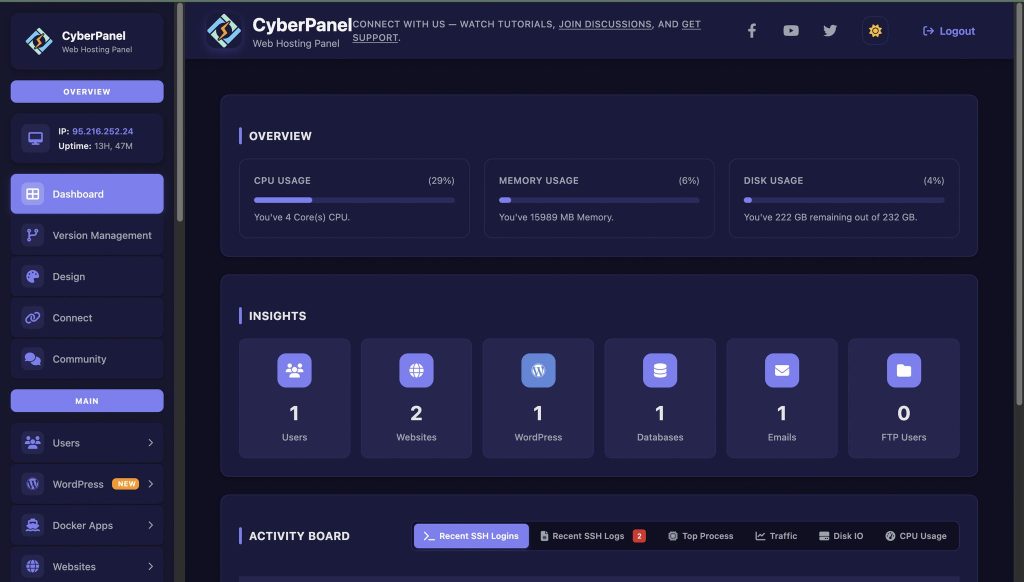In Linux system administration, user management is a core task. There are many commands available for that purpose. However, the Linux usermod command plays a pivotal role. You can modify user accounts using the Linux usermod command. Moreover, you can change a username, update a home directory, and also add a user to a group.
In this guide, we will learn how the usermod Linux command works, its importance, with practical examples. Let’s learn together!
What is the Linux usermod Command?
The usermod command in Linux modifies an existing user account. It permits you to make changes such as updating login names, adding groups, changing the shell, or setting a new home directory. Moreover, it doesn’t create a new account but edits an existing one.
How Does usermod Linux Work?
The Linux usermod command works by editing user details stored in system files. These system files include /etc/passwd and /etc/group. You can run the Linux usermod command with options. It will update these records to reflect new user settings.
Syntax of usermod in Linux
Here is the basic syntax of Linux usermod:
usermod [options] username
Common options:
Get exclusive access to all things tech-savvy, and be the first to receive
the latest updates directly in your inbox.
-l→ Change login name-d→ Change home directory-s→ Change login shell-aG→ Add user to groups
Practical Examples of Linux usermod Command
Now, let’ look at some pracgical examples:
Changing Username:
sudo usermod -l newuser olduser
It will update olduser to newuser
Changing Home Directory
sudo usermod -d /home/newdir username
Adding a User to a Group
sudo usermod -aG sudo username
Common usermod Options and Usage
| Option | Description | Example Command | Output / Effect |
|---|---|---|---|
-c | Adds or changes user’s comment field | usermod -c "New Comment" username | Updates GECOS field |
-d | Changes user’s home directory | usermod -d /new/home username | Sets new home path |
-e | Sets account expiry date | usermod -e 2026-12-31 username | Account expires on date |
-g | Changes primary group | usermod -g developers username | Moves user to new group |
-aG | Adds user to supplementary groups | usermod -aG sudo username | User gets sudo access |
-L | Locks the user account | usermod -L username | Prevents login |
-U | Unlocks the user account | usermod -U username | Restores login |
-s | Changes default shell | usermod -s /bin/bash username | Updates user shell |
-u | Changes user ID (UID) | usermod -u 1050 username | Sets new UID |
-l | Renames the login name | usermod -l newname oldname | Changes username |
Best Practices for Using usermod in Linux
- Always make a backup of /etc/passwd before you start changing it.
- Instead of -G, use -aG which will not overwrite your group membership.
- Do not usermod on a logged-in account if possible.
Role of CyberPanel in User Management

Although Linux usermod is a tool for system-level work, managing users in a hosting environment is quite different. To accomplish such tasks, CyberPanel, a web hosting control panel, offers a web interface that makes access control and user management simpler. Rather than using complicated commands, adding roles, permissions, and access to websites or mail accounts can be done straight from the dashboard. This is made server management very convenient for admins who are trying to get rid of the command-line complexities.
People Also Ask
Can I use usermod Linux without root?
No, you need root or sudo privileges to run the usermod command.
What if I run usermod incorrectly?
If you run usermod incorrectly, it can lock the account or cause login issues.
What is difference between usermod and useradd?
useradd creates a new account, while usermod edits an existing one.
Final Thoughts!
To sum up, the usermod command is important for Linux administrator. It gives you full control over user accounts without deleting or recreating them. With usermod command in Linux, you can change login names to manage groups. This command ensures flexible and secure account management. If you combine it with CyberPanel, you get both power and simplicity in managing your server users.

Start practicing Linux usermod command to enhance your Linux administration skills!



